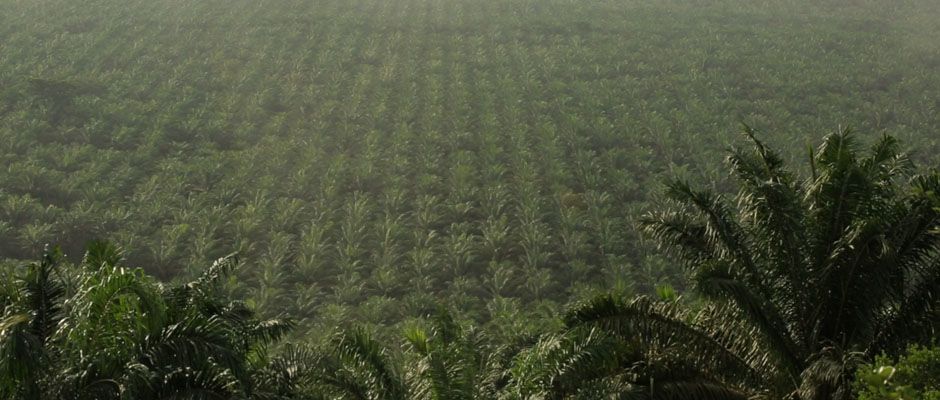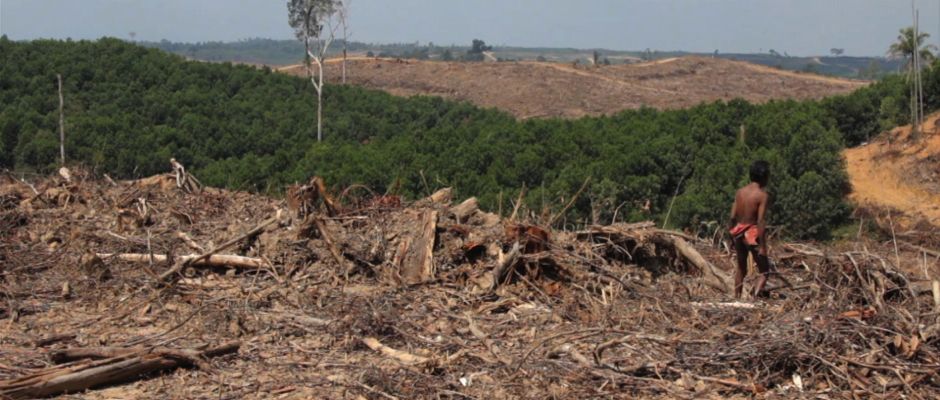Background Information

Land Rights and Land Grabbing
Communities with secure tenure rights are often the most effective managers and protectors of forests and other natural resources on their territories. Secure tenure rights for indigenous and local communities can bring multiple benefits for cultural resilience, food security, women’s rights, conflict avoidance, poverty alleviation, biodiversity, forest governance and climate security.
Yet many indigenous peoples and local communities across the tropics have no tenure rights, or existing rights are not respected, and communities are excluded from decision-making around land. Between 2000 and 2010, an estimated 30-50 million hectares of large-scale land deals were concluded across Africa, Asia and Latin America. These deals were driven by increasing global demand, mainly for food, biofuels and minerals.
Already today, in order to supply resource demand, large-scale developments such as logging, dams, mines, fossil fuel extraction, and plantations deny indigenous communities their territories, livelihoods and basic rights, and destroy the ecosystems on which they depend. If demand for raw materials continues to rise on present trends, global resource extraction will triple by 2050.
The land rush is leading to: the squeezing of rural livelihoods and the loss of food security as communities are displaced from or lose access to resources and ecosystem services; increasing conflict, violence and human rights violations; disproportionate negative impacts on the poorest populations, and especially on women; large-scale conversion of natural ecosystems, with the destruction of forests and peatlands resulting in high emissions of greenhouse gases.
Many land deals take place on the lands and territories of indigenous communities, often without their prior knowledge, participation or consent. Many companies around the world use similar tactics to obtain land: inflated promises of services or jobs; community-meeting attendance signatures used to prove consent to handing over land; threats and intimidation; the co-option and corruption of local leaders.
Indonesia and land rights
At present, Indonesian local governments have plans to expand plantations and mining by 30 million hectares by 2020; lack of tenurial security and the expansion of monocultures are resulting in conflict, forest loss, and the largest contribution of greenhouse gases from land-use change in the world.
Until recently, some 70% of the land area of Indonesia (130 million hectares) has been claimed by the Ministry of Forestry to be Indonesian State Forest Zone. Approximately 33,000 indigenous and local communities live within this contested area. To date, their tenure rights and forest management systems have not been recognised by the Indonesian government, despite many of them having managed their forests and territories under customary law for generations.
On 16th May 2013, the Indonesian Constitutional Court ruled that customary forests should not be part of the State Forest Zone, but forests subject to rights. This has the potential of validating the position of Indonesian Masyarakat Adat (which is often translated as indigenous peoples), that they are the owners of their lands, resources and territories.
Undoubtedly this ruling (known as MK 35) is a landmark decision in the struggle for indigenous peoples rights in Indonesia. The movement for the recognition of indigenous peoples' rights has been energised by the decision, with communities across the archipelago erecting signs declaring their ownership of their customary forests. There is hope that this decision may be a step towards resolving the ever growing numbers of land conflicts that are erupting across the large, contested area.
However, analysis by Indonesian land rights experts shows that MK 35 does not guarantee the recognition of indigenous peoples’ rights to their lands, resources and territories, not least because to date there is no national legal mechanism to allow this recognition to take place. Despite advocacy by AMAN (the Alliance of Indigenous Peoples of the Indonesian Archipelago) and many other civil society actors, to date there is little commitment or leadership by elites in the Indonesian parliament, government or other state institutions to move towards policies that would allow full recognition.
Territories of Life
- Territories of Life Videos
- About Territories of Life
- Organise a Screening
- Recent Screenings
- Background Information
- Other Language Versions
- Swahili version - Himaya za Maisha
- Baka Version - Territories of Life
- Bagyeli Version - Territories of Life
- Melanesian Version Territories of Life - Tok Pisin
"Currently in communities, there is a lack of balanced information. There is more information from companies and the government than information on how plantations affect people in reality. We need information based on people's real experience."
Human rights activist, Indonesia

